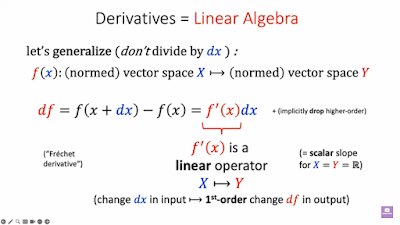Tim Gowers and Norman Wildberger Playing With Robots
He's very polite: because some of these responses he got from ChatGPT are hilarious. The main observation seems to be that AIs don't do well with maths because of the way most published mathematical literature is written, as students know only too well, is missing most of the dynamical elements in the proof process and is presented entirely in terms of truth-functional statements. Imre Lakatos described the process at length in his book Proofs and Refutations. During the development of the subject now called Additive combinatorics certain definitions such sumset were made, and because these somewhat arbitrary definitions turned out to be fruitful in some way, they became widely used and thereby imposed a certain structure on the development of the field. But those definitions were not a priori necessary, yet they now have a central rôle in the subject as it was developed. So, having thus defined the field, the process of proving theorems becomes heavily constrained by these definitions, in terms of which any putative theorem is expressed. But the historical development of a field is accidental and when two or more fields are considered together it often (or invariably?) turns out that there are other possible ways these same fields could have been developed in a very different way, together with yet another field which is in some sense induced by considering their combined development. See Norman Wildberger and Dean Rubine Rewriting History and Edward Frenkel Offering Free Psychoanalysis for an example and an origin theory.
Subscribe to Institut des Hautes Etudes Scientifiques (IHES).
For another example of such an "induced theory," see V.I. Arnold's classification of simple singularities of critical points "The ADE classification is ubiquitous in mathematics. For example, it arises in classification of the quivers of finite type and it made a recent appearance in the theory of cluster algebras of Fomin–Zelevinsky." Norman Wildberger talks about that here:
Norman also had a session with ChatGPT 4.0:
A few months ago he had this to say about "mathematical spaces"
My comments:
35:42 on whether or not the Universe knows how to normalise arbitrary vectors. I came back here after watching your presentation of the AMM paper on the series solution to polynomial equations. I am not sure physicists have any right to assume what the Universe knows or doesn't know. What concerns physicists is, or should be, just what can be observed in repeatable experiments. This suggests then that the shape of an underlying mathematical space suitable for representing physical measurements is a dynamical process with some of empirically approximated fixedpoint. So we learn how to divide lengths into parts and how divide those parts into parts, etc, etc, and in the process of doing these subdivisions, and other empirically founded operations, we perform a completion process. We never actually finish this process however: all we require is that we can continue it to the point where we no longer have the experimental apparatus capable of discriminating between our mathematical model of the space and the "space in itself" which we we image we are representing by this process.
I just watched your conversation about the real numbers with ChatGPT and there you object to the assumption that "numbers" such as pi, e and sqrt 2 exist mathematically. Here we are talking about whether the vector space in which we represent, say Newtonian dynamics, exists, and whether that is actually necessary in order to "do physics". But there are people who claim to be able to "do theoretical physics" by arguing about mathematical representations in a purely mathematical sense, and it is that sense in which I am questioning what it means for "The Universe" to know how to actually construct a unit vector in a given direction. The way I look at physical laws is that they are the things that happen just because there's no particular reason why anything else should happen. In other words, apples fall just because nobody catches them. This condition seems to be the minimum necessary for a laboratory experiment to be repeatable: you set up your lab like I did mine, and you will make similar measurements, provided you don't interfere with the system in some material way. In theoretical physics this view has been put forward by more than one person/group and is described by slogans such as Geometry is Entropy or Gravity is Entropy, etc.
Subscribe to Insights in Mathematics.
Gabriele Carcassi says it much better with music:
Subscribe to Gabriele Carcassi.



Comments
Post a Comment